Qatar World Cup 2022: The Money and the Mania
As Qatar 2022 draws near, an assessment of India’s true value to the world of World Cup football

It used to happen once every four years when it was time for another edition of the football World Cup. India’s football crazies, especially in Bengal, Kerala, Goa and other parts of the country with their local leagues, would be in a fever of excitement to watch the gods of their beloved sport. For an outsider with a passing interest, even that pent-up appetite, and the discussions and arguments it spawned, was an entertaining sideshow.
Thanks to cable television, Indians now have round-the-year access to top-drawer European leagues—and an appetite to match the supply, it seems. But there’s still something slightly incongruous about our obsession with an international tournament where the Indian national side is nowhere in the reckoning. (Our men’s team is currently ranked #106 by FIFA, the body that administers world football.)
It all begins to make sense when you look away from where we stand in the world football rankings to focus on where we, with our fanatic millions, stand as a potential market that everyone wants a part of. It tells you why India is the host nation for the recently concluded (ends October 30) under-17 women’s World Cup.
That’s right: fans make good consumers and for the entire ecosystem of World Cup marketers—broadcasters, advertisers, sports goods manufacturers, merchandisers, sports travel companies et al—this market is a mouth-watering prospect.
The 2022 Qatar edition of the ‘greatest show on earth’ is due to begin in less than three weeks (it gets underway on November 21), and more than 23,500 of the 1.8 million tickets sold in the first phase of sales were bought by Indian football enthusiasts, reported msn.com. Indians were ranked #8 among ticket buyers. Four years ago, there were 18,000 Indians in attendance in Russia, the third highest number among non-competing countries, after the United States and China.
Many more Indians would have bought tickets for Qatar since those early numbers were reported, given also that nobody can enter Qatar in November and December without a ticket for the World Cup, the ticket doubling as a visa—clever way to sell tickets and promote football tourism.
Qatar, a country of just 2.8 million people, has approximately 800,000 Indian residents, most of them labourers. The Indian residents are entitled to tickets for self and allowed to invite a limited number of non-residents as guests to watch the matches at cut rates. Several Indian cities are within 4-5 hours flying time from Doha.
The UAE, Saudi Arabia and other Gulf countries will run a hundred-plus ‘World Cup Shuttle’ flights every day to enable people to watch the matches and return the same day. This is because Qatar will have limited accommodation; it’s wary of building infrastructure that will become redundant after the World Cup. Instead, Qatar has focused on high-end tourists who will buy pricey tickets and stay in yachts.
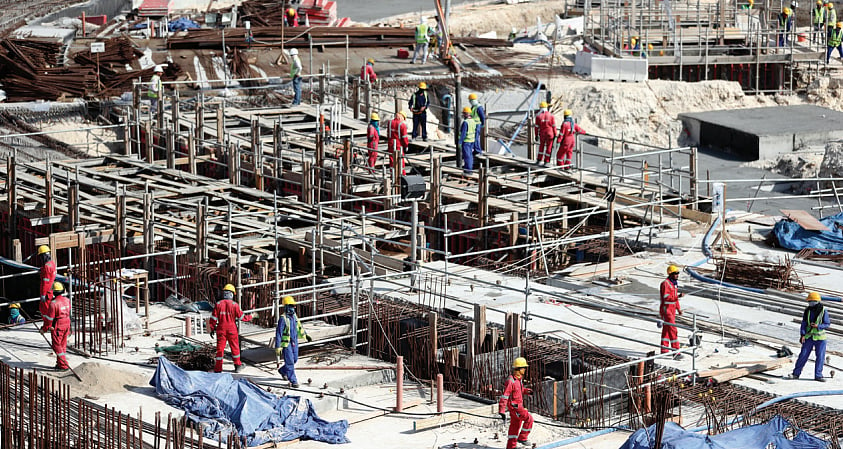
That won’t hold back middle-class Indians who want it badly enough. Naaji Noushi, a mother of five from Kerala, is travelling to Qatar solo to watch the final on December 18. She is driving to Mumbai, then flying with her SUV from Mumbai to Oman, from where she’ll take the road again. For Noushi, this is a way to pander to two loves—football and driving—at the same time. Most others will fly in to Doha.
Amit Mukherjee, a Kolkata-based entrepreneur, and his three college pals were “lucky…,” they say, “…to have found tickets on the FIFA portal itself. We got tickets for two of the quarterfinals and both the semis (for $2,200 or Rs 1.8 lakh, at Rs 82 to a dollar); it would’ve cost multiples had we gone the route of FIFA-accredited agents.”
A week in Qatar will set them back by Rs 4-5 lakh each— “a small price to pay to watch legends play,” enthuses Mukherjee. They did get lucky, it seems, because the quota of online tickets vanished in no time, and fans with deep pockets have indeed been making a beeline for FIFA-accredited agents, who are making brisk business.
The television viewership in India for the Qatar World Cup is expected to cross 300 million—the highest since World Cup made its entry into Indian homes via black-and-white TV sets in 1982.
Things have come a long way since, and for many upwardly mobile Indian fans, it’s an aspirational thing to be present at marquee sports events—be it a tennis Major (with Wimbledon probably the most sought after) or an English Premier League game or a Champions League final… and nothing beats the World Cup, of course.
Some corporate houses offer match tickets to employees as performance-linked incentives while others lure buyers with tickets in lucky draws or all-expenses paid trips along with match tickets.
Not surprisingly, hundreds of WhatsApp groups have sprung up for Qatar-bound Indians to share information. Tata Steel executive Debajyoti Mitra, 37, is an administrator of one such group with nearly 20 members. “We bonded on Facebook and the idea [of the WA group] was to exchange both information and experience, so that we could make the trip on a reasonable budget and still savour a lifetime experience.’’
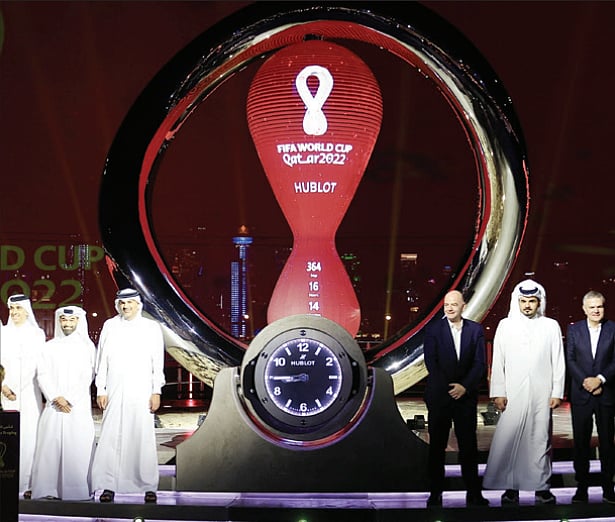
Fanatic Sports, a sports travel company and the joint exclusive sales agent in India of MATCH Hospitality for Qatar 2022 tickets, is one of the major FIFA-accredited players in the game. Founder & CEO Raghav Gupta claimed in a recent interview that the projection of business from India was a staggering Rs 200 crore, accounting for about 6 per cent of the overall hospitality revenues of the World Cup.
“We are seeing strong demand across all spectrums of the market from budget fans to high networth individuals to large corporates or Indian multinationals who are using this opportunity to network with clients. In the West, companies travel for sports [events] to network, and this is now being mirrored in India as well.
Corporate hospitality for sports is [growing] exponentially in India,” Gupta told Moneycontrol. The packages offered by his company, including travel, stadium tickets and accommodation, start at $950 (approx. Rs 78,000) going up to $35,000 (Rs 28.7 lakh) for the finals.
There is a domino effect on air traffic to Doha starting from the second week of November. Qatar Airways, Emirates and Etihad have all seen a spike in demand. Air India too has upped its game, announcing 20 additional flights a week to Doha from Mumbai, Hyderabad and Chennai October 30 onward. This will include 13 flights a week from Mumbai, four a week from Hyderabad and three flights a week from Chennai.
The Chennai-Doha service will commence from November 10 and Hyderabad-Doha service from November 11. The Mumbai-Doha flights will be launched in two phases October 30 onward, in addition to the existing daily flights to Doha from New Delhi.
It was in end-March that edtech firm Byju’s, the current sponsor of the Indian cricket team, announced a coup of sorts in becoming one of the official partners of the FIFA World Cup. The Byju Raveendran-owned company is believed to have shelled out $30-40 million (Rs 247- 330 crore) to acquire the rights.
It’s not, however, the first Indian company to do so, as some have claimed; the now-broke Satyam Computer Services was the official IT services provider in the 2010 and 2014 editions of the World Cup in South Africa and Brazil, respectively.
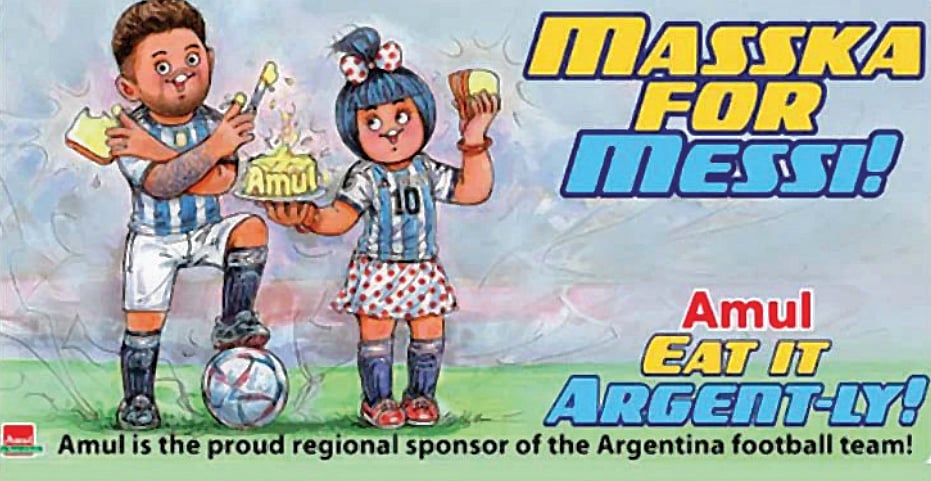
While Byju’s may be looking to aggressively consolidate its position among the Indian diaspora, some industry watchers question the wisdom of splurging on the FIFA World Cup as possible overkill, given that the company already sponsors the Indian cricket team, arguably the most sought-after sporting brand in the country.
Raveendran, himself a Malayali, also backs the Kerala Blasters football team in the Indian Super League. There are other Indian businesses in on the sponsorship action.
With its ‘Masska for Messi’ catchline earlier this month, dairy products biggie Amul announced its deal as the regional sponsor of the Argentine team. Expect more such announcements as we get closer to the date. With the FIFA showpiece scheduled in winter this time, instead of its usual June-July window, the build-up is coinciding with India’s campaign in the T20 World Cup, but there’s been a huge upsurge of interest in the ‘beautiful game’ nevertheless, statistics reveal, especially among Indians in the 18-25 years age bracket.
Speaking to National Herald, Mohit Hira, co-founder of Myriad Communications and venture partner, YourNest Capital Advisors, agreed that there is a perceptible shift in loyalty from cricket among the urban youth of the country. “Cricket appears to be suffering from ageism, as far as audiences go. Football, on the other hand, is appealing to school kids and young adults alike. Probably because it brings friends and strangers together in public spaces (read: sports bars) for the duration of the match and causes a celebration even though India and Indians have no influence on the game…. There is possibly an understated hope that some day India will dominate world football too.’’
Sports tourism has become a lucrative business in recent years. DreamSetGo, a firm that integrates sports and luxury travel, was founded in 2019 by India’s first fantasy sports unicorn Dream11. In 2015, Bharat Army, the Indian cricket fans organisation that follows the team across the world, formed its own sports tourism wing named Bharat Army Travel & Tours.
Some new-age businesses are raking it in, possibly even at the expense of their old-world counterparts. Not so long ago, there would inevitably be a surge in TV sales ahead of cricket or football world cups or other big sporting events. Not so this time.
With live streaming making it super convenient to catch games on personalised gadgets like smart phones and laptops, TV sales are likely to be hit. That possibility is made very likely by the fact that Viacom 18 Sports, the sports arm of the Reliance Group, has announced that it will livestream all matches free on their Jio Cinema channel, as well as on iOS and Android phones.
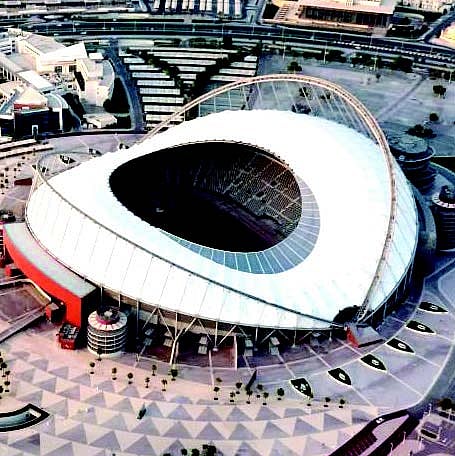
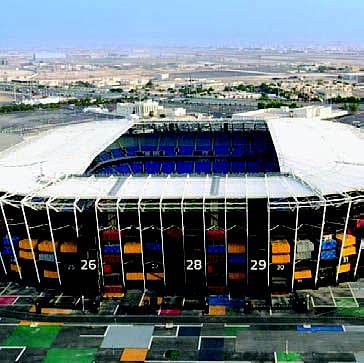

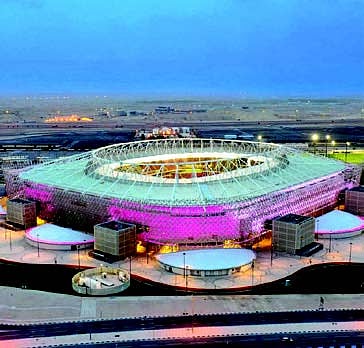
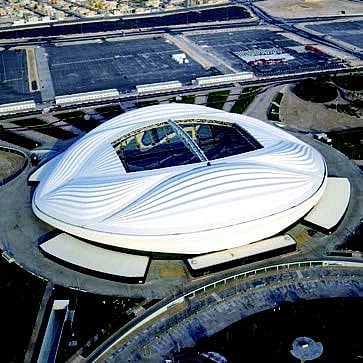
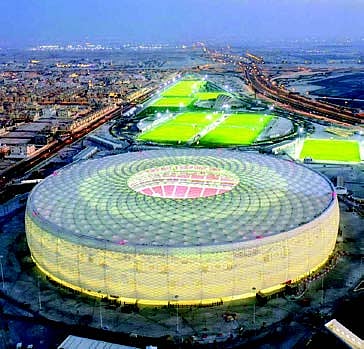
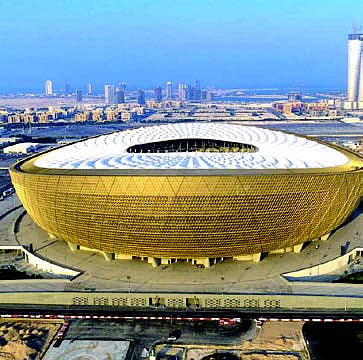
Nabendu Bhattacharya, vice president (sales) of Hyundai Electronics, is hopeful, though, that sales will pick up despite changes in viewing patterns. “Personalised gadgets do dominate current viewing habits… but sales will pick up closer to the date.”
India sells an estimated 13.5 million LED television sets a year. There are enough and more discerning customers, Bhattacharya says, who might treasure the experience of watching these matches on a big screen with friends and family.
Customers may rely on online sales more than stores, but they are not loath to spend on 55-/ 60-/ 75-inch screens. If the estimated TV viewership of 300 million, as per media reports, is any indication, Bhattacharya may not be far wrong.
Anyway, irrespective of where and how Indians watch the Qatar World Cup games, the conspicuous absence of an Indian team, to return to the opening theme of this piece, despite the millions of fans and the huge market and everything that goes with it, will trouble aficionados.
On that theme, Jaydeep Basu, football writer and author of Box to Box, offers a sobering reality check: “There are no shortcuts—we first have to be good enough to be among the top 10 in Asia. Then we can start dreaming of playing in the World Cup finals.
Follow us on: Facebook, Twitter, Google News, Instagram
Join our official telegram channel (@nationalherald) and stay updated with the latest headlines
